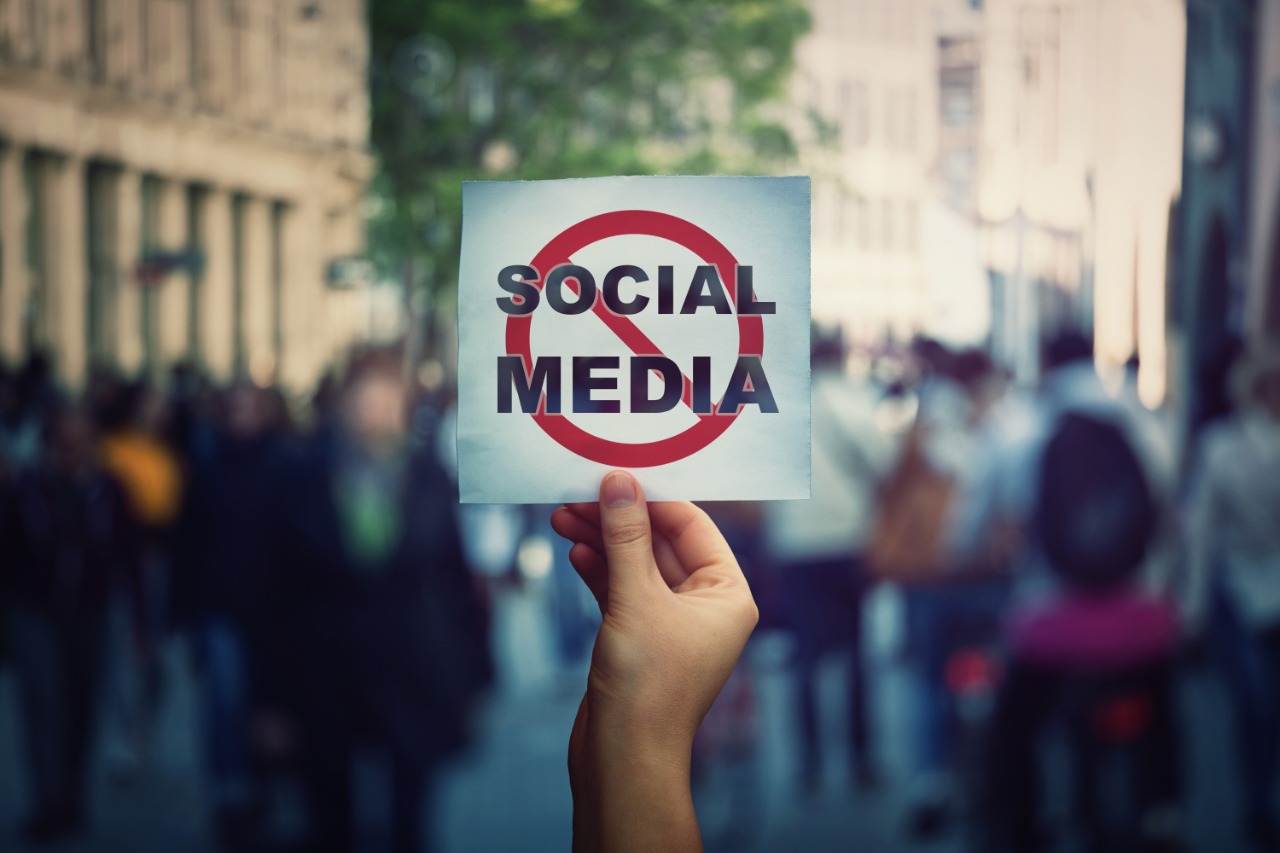مقال مترجم عن مجلة Columbia Journalism Review.
شهد الصراع الممتد منذ عقود بين إسرائيل وفلسطين تصعيدًا كبيرًا في الأسابيع الماضية، وذلك عقب محاولات الإخلاء القسري التي تعرّض لها الفلسطينيون الذين يعيشون في القدس على أرض تسعى إسرائيل للاستحواذ عليها، وبعد اعتداءات طالت المسلمين في المسجد الأقصى وساحاته في الأيام الأخيرة من شهر رمضان.
وقد لجأ الفلسطينيون والمناصرون لقضيتهم إلى مشاركة صور ومنشورات توثق الاعتداءات الحاصلة، على فيسبوك وتويتر وإنستغرام، إلا أن عديدين منهم لاحظوا أن المحتوى يختفي فجأة، أو يتعرض للتقييد بحجة مخالفة قواعد الاستخدام الخاصة بتلك المنصات، بالرغم من عدم حصول أي انتهاك لها. بل ووصل الأمر في بعض الحالات إلى تعليق حسابات العديد من المستخدمين، كما فعلت تويتر مثلًا حين قيدت حساب الكاتبة الأمريكية من أصول فلسطينية، مريم برغوثي، مع أنّها لم تنشر سوى صور ومقاطع فيديو عن العنف الدائر في القدس، ثم تراجعت تويتر بعد ذلك وأعادت تفعيل حسابها، وقالت إن ما حصل لم يكن مقصودًا.
لكن المعنيين بتغطية هذه القضايا منذ سنوات يعلمون أنّ مثل هذه الأمور لا تحدث صدفة، وإنما يدركون أن شبكات التواصل الاجتماعي تتقصّد حجب المحتوى الفلسطيني. ففي نقاش حواري على برنامج "ذا ستريم" على الجزيرة الإنجليزية، قالت مروة فطافطة، التي تعمل مع مؤسسة "أكسيس ناو" المعنية بحقوق الإنسان، إن هذه ليست مشكلة جديدة، وإن ما حصل هو أنها ازدادت سوءًا مؤخرًا، وأضافت: "أكتب حول هذه القضية منذ وقت طويل، إلا أنه لم يسبق لها أن وصلت إلى هذا المستوى. الأمر بات فاضحًا وغير معقول، بل إنه يتعدّى الرقابة، ليصبح قمعًا رقميًا؛ فالحاصل هو إسكات للرواية الفلسطينية، ولمن يعملون على توثيق جرائم الحرب".
وقد نشر حساب مؤسسة "أكسيس ناو" على تويتر قبل أيام سلسلة تغريدات بخصوص الرقابة على المحتوى الفلسطيني على فيسبوك وتويتر وإنستغرام وتيك توك. وقد قالت المجموعة إنها تلقت "مئات التقارير التي تفيد بتقييد هذه المنصات للوسوم التي تحيل إلى الاحتجاجات الفلسطينية، وحجب البث المباشر، وحذف المنشورات وتعليق الحسابات". أمير خطاطبة، مؤسس مجلة "مسلم" الشبابية والناطقة بالإنجليزية، يقول إنه وثق 12،000 حالة من حجب المحتوى على إنستغرام فقط، خلال الأسابيع الماضية.
كما نشرت مجموعة "حملة"، المركز العربي لتطوير الإعلام الاجتماعي، تقريرًا بعنوان "وسم فلسطين"، يوثق عمليات الحجب وتعليق الحسابات التي جرت عام 2020 فيما يتعلق بالمحتوى حول الصراع الإسرائيلي الفلسطيني. وفي هذا الصدد، قالت منى شطايا، الناشطة مع مجموعة "حملة"، للجزيرة، إنها ليست المرة الأولى التي يتم فيها إسكات أصوات الفلسطينيين، ومن الواضح أنها لن تكون الأخيرة". وقد وجدت "حملة" أن فيسبوك قد استجاب لـ 81 بالمئة من الطلبات الإسرائيلية لإزالة المنشورات، غالبيتها كانت ذات علاقة بفلسطين. وإضافة إلى إجراءات حذف المحتوى، قالت فطافطة إن "أكسيس ناو" اطلعت على العديد من التقارير من مجموعات وأفراد بخصوص تقييد قدرتها على استخدام بعض الخيارات، مثل ضغط زر الإعجاب أو التعليق على المنشورات، أو تقييد خيار البث المباشر، أو تعريض البث المباشر للإغلاق والقطع المفاجئ.
اعترفت الشركات التي تتبع لها هذه المنصات بإقدامها بالفعل على حذف بعض أشكال المحتوى وتعليق عدد من الحسابات. وقد اعتذرت إنستغرام عن تعطل قدرة العديد من الحسابات على نشر محتوى متعلق بفلسطين، وهو ما استمر لعدة ساعات في 6 مايو/أيار، وتعرض العديد منها للتقييد أو التعليق. وقالت الشركة إن ذلك حصل كجزء من مشكلة تقنية أوسع، أثرت على منشورات عدد من الدول، في مواضيع مختلفة. وقال آدم موسيري، الرئيس الحالي لإنستغرام، في تغريدة على تويتر: "ظن العديد من الناس أننا نحذف محتواهم بسبب طبيعة المنشور أو الهاشتاغ، إلا أن الخطأ البرمجي لم يكن متعلقًا بالمحتوى نفسه".
لم يكن هذا التفسير مقنعًا للعديد ممّن عانوا من هذه الإجراءات. وقالت شطايا إن الكلام "غير منطقي وغير مقنع". وقد استمرت إنستغرام في حجب العديد من المنشورات حول المسجد الأقصى، ثم اعتذرت لاحقًا، وقالت إن اسم المسجد كان مقيدًا بالخطأ كمحتوى "إرهابي" وفق الخوارزميات الخاصة برقابة المحتوى في المنصة.
فيسبوك اعتذرت هي الأخرى عن بعض عمليات حذف المحتوى والحسابات التي حصلت في الماضي. ففي عام 2016، أغلقت -فجأة- حسابات شخصية لأربعة محررين في وكالة شهاب للأنباء، وثلاثة مدراء تنفيذيين من شبكة القدس الإخبارية، وهو ما ادعت فيسبوك -يومها- أنّه أمر عرضيّ. إلا أن مجموعة "حملة" وغيرها من المؤسسات، قالت إن لدى الحكومة الإسرائيلية وحدة سيبرانية تنشط عادة بتقديم طلبات بحذف المحتوى الفلسطيني، كما تعمل في بعض الحالات على "تنسيق نشاط مجموعات من الحسابات كي تبلّغ عن المحتوى الفلسطيني، وتنشر محتوى مضللًا وخطاب كراهية موجّها ضد الفلسطينيين". وفي رسالة عبر البريد الإلكتروني موجهة إلى مجلة كولموبيا للصحافة، قال متحدث باسم فيسبوك: "قلوبنا مع جميع من طالهم العنف المرعب الدائر، ونعلم أن ثمة العديد من القضايا التي أثرت على قدرة البعض على مشاركة المحتوى على تطبيقاتنا، ولذلك نعتذر من أي شخص شعر بأنه لم يكن قادرًا على لفت الانتباه إلى تلك الأحداث رغم أهميتها".
فلسطين في وسائل التواصل الاجتماعي
استهداف اعتباطي: تقدمت مؤسسة "أكسيس ناو"، ومجموعة "حملة"، وعدد من مجموعات المناصرة وحقوق الإنسان، برسالة مفتوحة لإدارات فيسبوك وتويتر وإنستغرام وغيرها من شبكات التواصل الاجتماعي، جاء فيها: "إن القرارات الاعتباطية والغامضة تشكل انتهاكًا جديًا لحقوق الفلسطينيين الأساسية، والتي تشمل الحق في حرية التعبير، والحق في التجمع الرقمي، وهو ما تعهدت فيسبوك وتويتر بضمانه للمستخدمين وفق المبادئ التوجيهية للأمم المتحدة بشأن الأعمال التجارية وحقوق الإنسان". وطالبت المجموعات هذه الشركات بممارسة قدر أعلى من الشفافية فيما يتعلق بعمليات إدارة المحتوى.
غوغل:
في العام 2020، أوضح مركز "صدى سوشال"، المختص بمراقبة استهداف المحتوى الفلسطيني على وسائل التواصل الاجتماعي، أن فلسطين لم تكن معترفًا بها بهذا الاسم في خرائط غوغل أو خرائط أبل، بل كان يشار إليها باسم "الضفة الغربية" و"قطاع غزة". كما وجد المركز أن غوغل كانت قد بدأت بإزالة أسماء المدن والشوارع الفلسطينية من خرائطها، مع الإبقاء على الأسماء الإسرائيلية.
معاداة السامية:
ذكر العديد من مستخدمي فيسبوك أن منشوراتهم التي تنتقد إسرائيل أو تدافع عن فلسطين كثيرًا هي ما توسم من قبل إدارة المنصّة بأنها معادية للسامية. وقد أكد موقع "إنترسيبت" مؤخرًا على ما وصفه "قواعد داخلية سريّة في فيسبوك تخص تعديل استخدام كلمة "صهيوني" (Zionist). ويقول الموقع إنها قواعد تستخدم في تقييد المحتوى الناقد لإسرائيل، وهي قواعد يبدو أنها سارية منذ العام 2019، ما يتعارض مع ادعاءات الشركة بأنه لم يتم التوصل إلى قرار بخصوص اعتبار كلمة "صهيوني" معادلة لكلمة "يهودي" عند تعريف خطاب الكراهية.
الحذف:
نشر فريق التحرير في موقع IGN المتخصص بأخبار ألعاب الفيديو رسالة مفتوحة قبل أيام يشتكون فيها من إزالة مقالة للموقع وتغريدة ذات علاقة بها لاشتمالها على روابط لمؤسسات خيرية تدعم الضحايا الفلسطينيين الذين كانوا ضحية أعمال عنف. المادة والروابط نشرت في 15 مايو/أيار، وذلك بعد هجمات صاروخية إسرائيلية على قطاع غزة، أما عملية الحذف فتمت في 16 مايو. وقد نشر الموقع بيانًا في اليوم التالي جاء فيه إن المحتوى حذف لأنه "لم يكن منسجمًا مع قصدنا الساعي للتعبير عن الدعم لكافة من طالتهم آثار الأحداث المأساوية الحاصلة"، وأن المحتوى "ترك انطباعًا خاطئًا بأننا منحازون سياسيًا إلى أحد الأطراف".
المقال الأصلي: https://www.cjr.org/the_media_today/social-networks-accused-of-censoring-palestinian-content.php


















![Palestinian journalists attempt to connect to the internet using their phones in Rafah on the southern Gaza Strip. [Said Khatib/AFP]](/sites/default/files/ajr/2025/34962UB-highres-1705225575%20Large.jpeg)





















